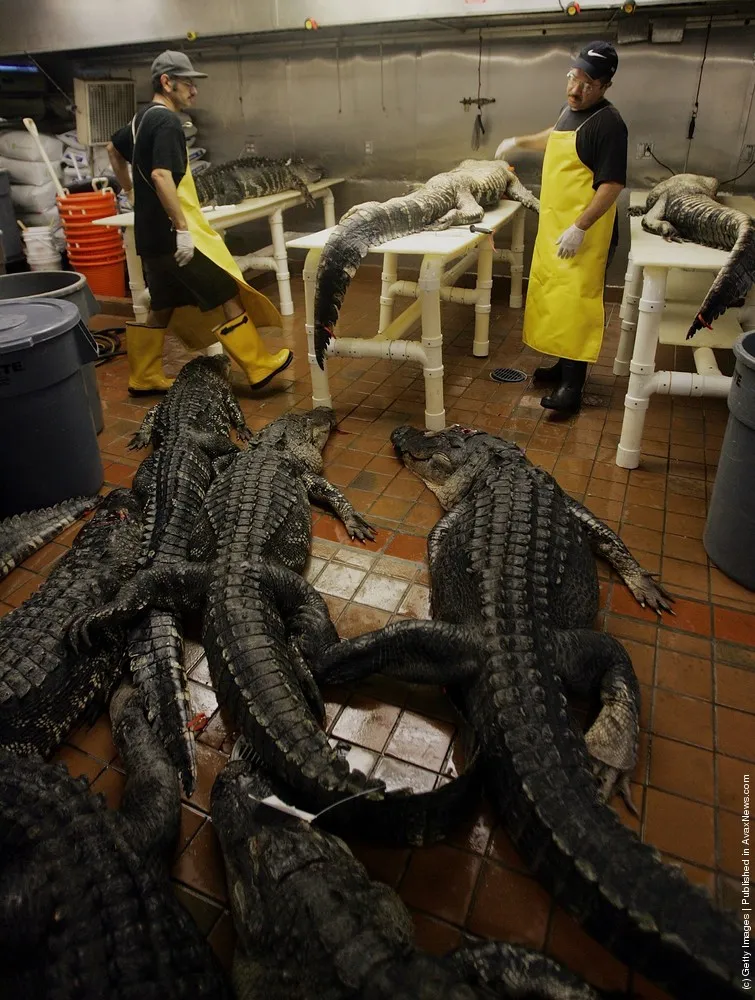Florida's Alligator Hunting Season is a unique and exhilarating experience that draws enthusiasts from all over the world. This annual event offers hunters the chance to engage with one of nature's most formidable creatures while contributing to conservation efforts. The thrill of stalking these ancient reptiles in their natural habitat is matched only by the satisfaction of knowing you're helping maintain ecological balance.
Beyond the excitement, Florida's alligator hunting season plays a crucial role in wildlife management. By regulating populations, it ensures that alligators do not become overabundant, which could lead to conflicts with humans or harm local ecosystems. For those who participate, this season represents more than just sport—it’s an opportunity to connect deeply with nature and preserve Florida's rich biodiversity for future generations.
Florida's Alligator Hunting Season: Your Ultimate Guide to Regulations, Tips, and Thrills! Whether you're a seasoned hunter or a curious beginner, this guide will provide everything you need to know about embarking on this unforgettable adventure. From understanding the rules to mastering essential techniques, we'll cover it all so you can make the most out of your gator-hunting journey.
Exploring the Roots of Gator Hunting
Gator hunting has evolved significantly over the years, becoming both a revered tradition and a vital tool for environmental stewardship. Many hunters share stories of trophy-sized catches, like the remarkable gator taken down in August several years ago. Such experiences leave lasting impressions, transforming casual observers into passionate participants. Even those initially indifferent to alligators often find themselves captivated by the challenge and allure of the hunt.
This transformation isn't limited to individuals; communities also benefit from the economic and cultural impacts of gator hunting. Local businesses thrive during the season, and educational programs help foster respect for these powerful creatures. Through regulated hunts, Floridians ensure that alligators remain a sustainable part of their ecosystem without threatening human safety.
The history of gator hunting reflects a delicate balance between exploitation and preservation. Early unregulated practices nearly drove alligators to extinction, but modern regulations have successfully restored their numbers. Today, hunters play a pivotal role in maintaining this equilibrium, making each successful hunt a testament to responsible wildlife management.
Hunt Timing and Locations
Alligator hunting seasons vary across regions, but in Florida, the primary harvest period typically begins on August 15 and extends until November 8. These dates are strategically chosen to align with optimal weather conditions and breeding cycles, ensuring minimal disruption to alligator populations. Hunters must carefully plan their excursions within these windows to maximize success and comply with legal requirements.
Within this timeframe, two distinct harvest periods exist. The first occurs from August 15-21 and September 12-November 8, while the second runs from August 22 onward. Each period comes with its own set of quotas and restrictions designed to manage population density effectively. Understanding these nuances is critical for anyone looking to participate in the season.
In addition to timing, location plays a significant role in determining the outcome of a hunt. Both public and private lands offer unique opportunities, though access may differ based on permits and permissions. Public land hunts require securing specific slots through a lottery system, adding another layer of strategy to the planning process.
Requirements and Licensing
To participate in Florida's alligator hunting season, individuals must obtain the necessary licenses and permits. This includes a standard hunting license as well as specialized credentials tailored specifically for gator hunting. Without proper documentation, hunters risk facing substantial fines and potential bans from future activities. Ensuring compliance with these prerequisites is therefore paramount.
For newcomers unfamiliar with the process, resources such as the Florida Fish and Wildlife Conservation Commission (FWC) website serve as invaluable guides. They outline step-by-step instructions for acquiring permits and detail important considerations regarding equipment, methods, and ethical conduct. Familiarizing oneself with these guidelines helps streamline preparation and enhances overall safety.
It's worth noting that certain exemptions apply, particularly for minors under the age of 16. However, even young hunters must adhere to strict supervision protocols to safeguard against accidents. By prioritizing education and responsibility, everyone involved contributes positively to the sustainability of this cherished activity.
Tips for Successful Hunts
Success in alligator hunting depends heavily on preparation and technique. Experienced hunters recommend starting early in the season when water levels are lower, increasing visibility and accessibility. Additionally, employing effective baiting strategies—such as using fresh fish or chicken—can significantly improve chances of attracting larger specimens.
Equally important is selecting appropriate gear suited for the task at hand. Essential items include sturdy boats capable of navigating shallow waters, reliable firearms or harpoons, and high-quality lighting systems for nighttime operations. Investing in quality equipment not only enhances performance but also ensures personal security throughout the expedition.
Lastly, always prioritize safety above all else. Wear life jackets, communicate clearly with companions, and never underestimate the strength or unpredictability of your quarry. With careful planning and cautious execution, every hunt becomes an opportunity to create lasting memories while honoring the spirit of conservation.
Looking Ahead to Future Seasons
As interest in alligator hunting continues to grow, so too does the importance of adapting to changing circumstances. Recent innovations in technology and methodology promise exciting developments for upcoming seasons. For instance, advanced tracking devices allow hunters to monitor movements more accurately, improving efficiency and reducing unnecessary disturbances.
Moreover, ongoing research into alligator behavior and habitats informs better management practices, benefiting both hunters and wildlife alike. Staying informed about these advancements enables participants to stay ahead of trends and refine their skills accordingly. Engaging with community forums and attending workshops further fosters collaboration and shared learning among enthusiasts.
Ultimately, Florida's alligator hunting season stands as a testament to humanity's ability to coexist harmoniously with nature. By embracing responsibility and innovation, hunters uphold traditions that celebrate our connection to the wild while safeguarding its future prosperity. As we look forward to new adventures, let us remember the lessons learned and strive toward ever-greater achievements in conservation and camaraderie.

